Maggie Kane is an academic, a self-learner, an activist and an artist. She works in user experience design, illustration, technology accessibility, interaction design but you can also meet her at hacker events, in a workshop building arcade cabinets, in non-profit maker spaces or in any venue where communities get together to solve concrete problems that their local government seems to be unwilling to dedicate efforts and funding to solve.
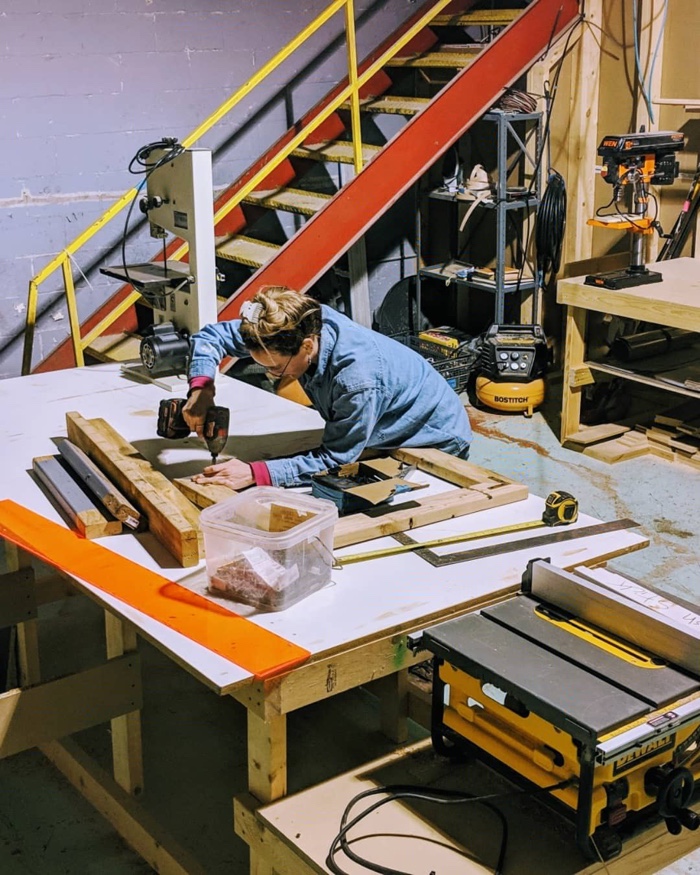
The list of community aid projects Maggie Kane plays an active role in is too long to copy so I’ll just mention a couple: She is the lead (volunteer) designer and fabricator for Free99Fridge, a free public food shelter project in Atlanta that feeds dozens of families in need each day. The six shelters host “solidarity fridges” that are placed outside local businesses and are filled with fresh fruits and vegetables for people to pick up. She’s also a (volunteer) art and educational program manager for The Bakery Atlanta, a multi-use community space in Atlanta run by a collective of creative thinkers aligned around social justice principles, environmental concerns and art. As if that were not enough, Maggie is also the (volunteer) technical producer for Nourish Botanica (formerly Nourishinblack), a greenhouse eatery project that doubles as a space to explore storytelling, healing and land reparations for Black farmers in Atlanta.
She’s both incredibly creative and resolutely down to earth. I discovered her work very recently through the The School of Machines, Making & Make Believe where she’s preparing to run online classes on the theme of Modelling for mutual aid. Toolkit for building supportive networks. I’ve since been wondering how she can be so active on so many fronts on her professional life AND find time to work with marginalised communities and support several mutual aid projects in Atlanta. The easiest way to discover her secret was to trap her in a Skype conversation:
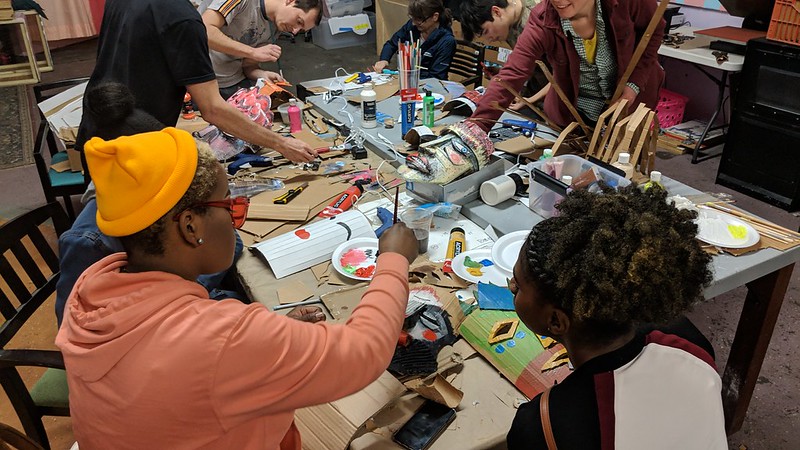
Teaching art classes at The Bakery. Image courtesy of Maggie Kane
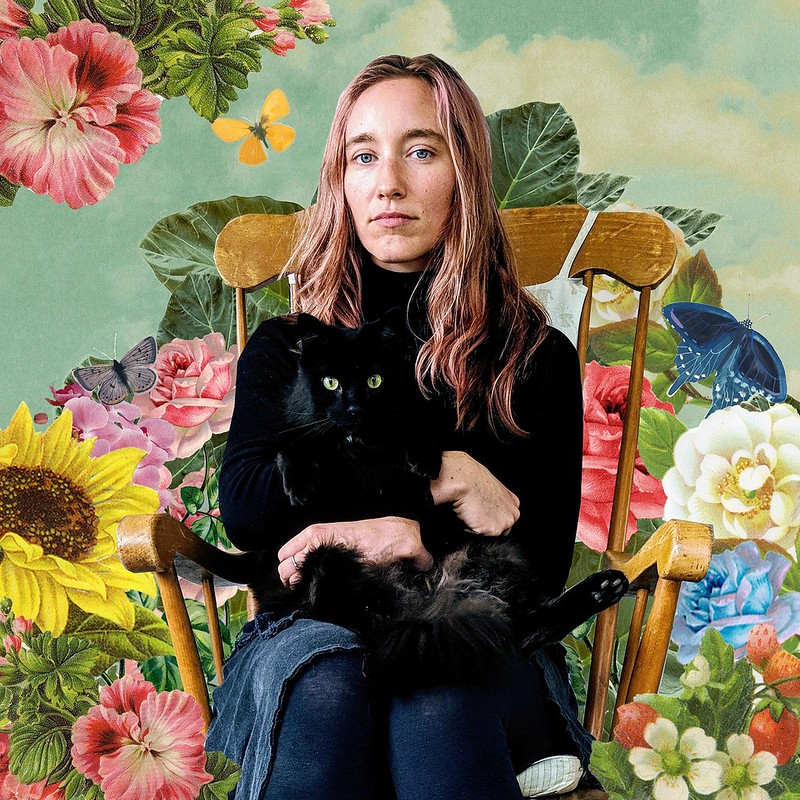
Hi Maggie! How did you get into mutual aid projects? Did it start with a personal experience?
I got into community tech work when I was studying sociology at the university. I was doing some research for a professor and we got a grant to do a comparative study on historical data from this neighbourhood I lived in in New Orleans. I looked at the data and started to visit several addresses. I thought I’d just talk to people but when I started discussing with the people who were there, I met a black man whose grandfather had started a barbershop in the neighbourhood. He was frustrated that people like him didn’t get any funding when they were struggling so much in this neighbourhood whereas a white student from university got money to talk to him about his life. To him, that was not the kind of help people in the neighbourhood needed. His name was Stan and I ended working with Stan on a project because I realised he was right: projects like the one I was working on do not really support the people and the communities that we want to work in.
I’m a very academic person, I love reading, I love philosophising but ultimately, I was very disappointed by academia. Doing a research on a population doesn’t help them. I started asking myself: Why don’t you just go to these people and do something with them that directly benefits them?
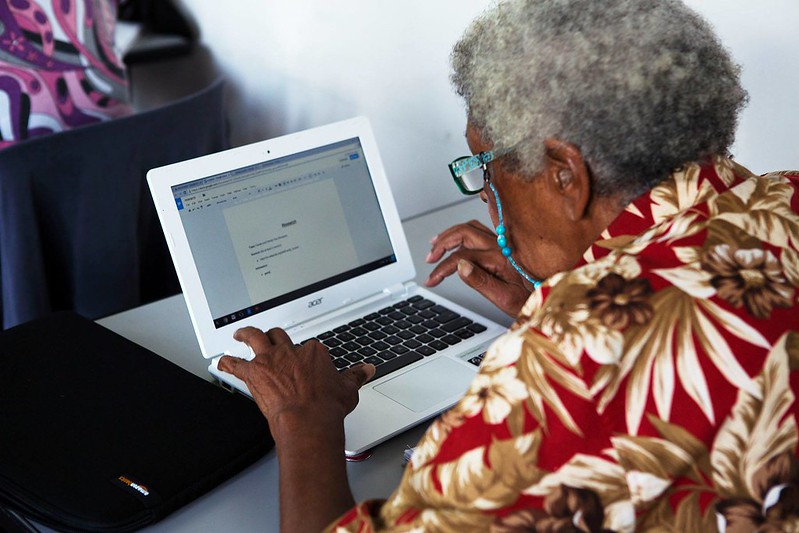
New Orleans DIY education organisation. Photo courtesy of Maggie Kane
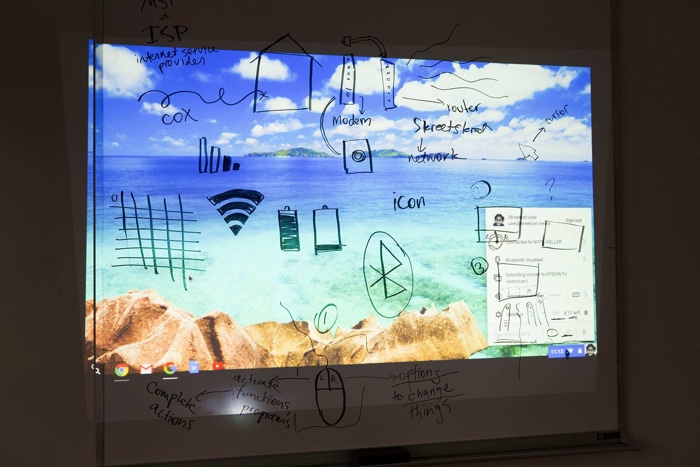
New Orleans DIY education organisation. Photo courtesy of Maggie Kane
In any case, after that first research project was completed, I ended up doing a lot of work at a community centre that was just next door to Stan’s barbershop. I started by listening to people and listening to my neighbours about their problems. That was very different from being this privileged person coming in and trying to affect change. That’s how I found out that many people in the community didn’t have basic technical literacy skills, they didn’t know how to use a computer even though they needed to be able to use one to do essential things such as applying for a job. I ended up building up programming that adjust pretty easy problems people encountered when they were in front of a computer. I first partnered with that neighbourhood centre then with a library. I started approaching this type of community space. That was in 2011 and, over time, I partnered with more community spaces, first in New Orleans and then in Atlanta when I moved there in 2014.
I actually don’t have a tech background. My background is in research and arts. I didn’t want to go back to university, I wanted to see how I could learn by myself and try and be a better human. I got involved in Meetup groups, visited hacker spaces and discovered free tech community resources that allowed me to learn development skills, electronic skills without having to pay tens of thousands of dollars to learn that type of skills.
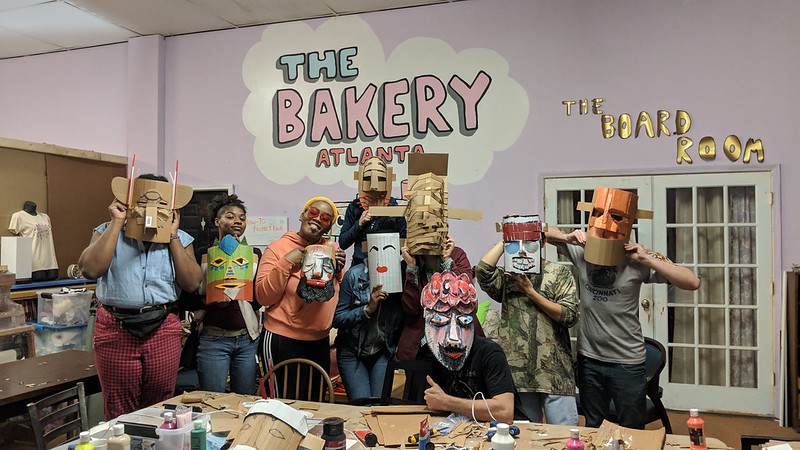
Teaching art classes at The Bakery. Image courtesy of Maggie Kane
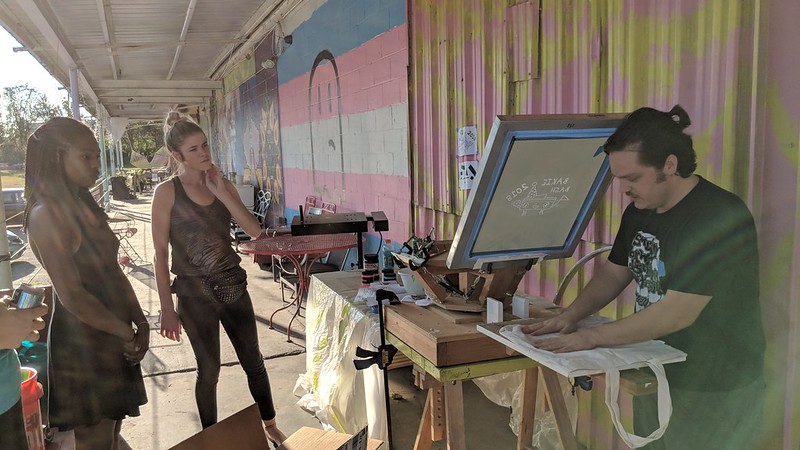
Teaching art classes at The Bakery. Image courtesy of Maggie Kane
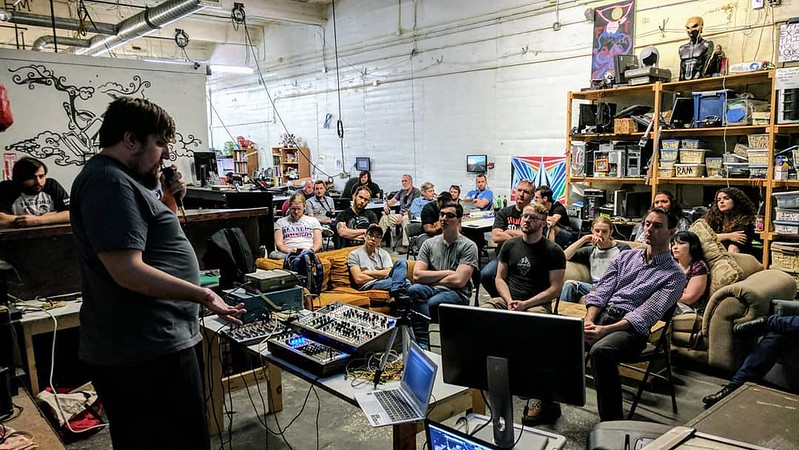
Organising DIY synth and electronics classes with instructors from the community. Photo courtesy of Maggie Kane
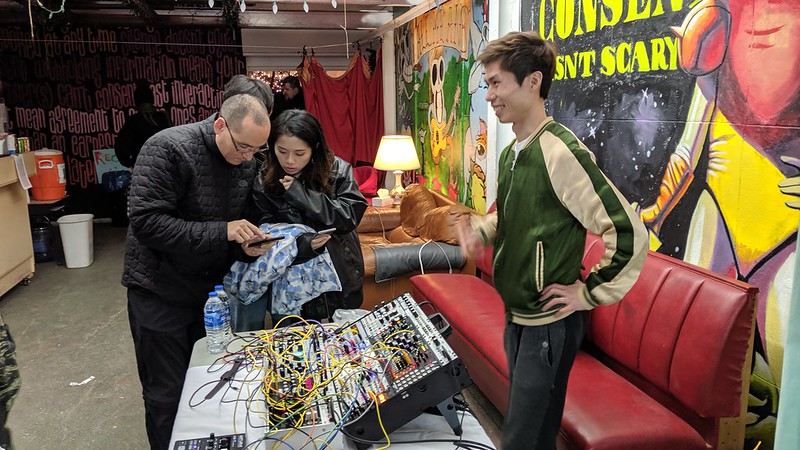
Organising DIY synth and electronics classes with instructors from the community. Photo courtesy of Maggie Kane
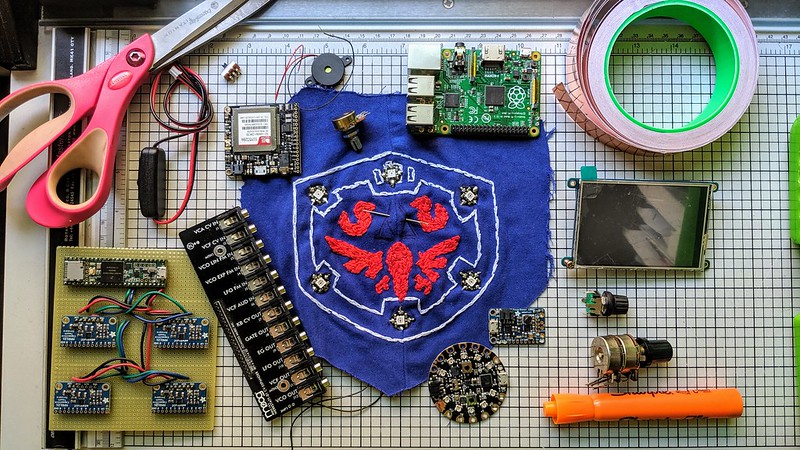
Teaching electronics. Photo courtesy of Maggie Kane
You are involved in many mutual aid projects. But you also have a career as a designer and you’re often busy working on hacking projects. So how do you make time when clearly you have so little of it? And why is it important for you to volunteer in mutual aid projects when you have so many excuses to do something else?
I genuinely enjoy helping other people with my skills and sometimes I get something out of it too. For a while, I was organising educational programming at a maker space / hacker space. I would organise classes that I wanted to learn so that participants and I would learn from each other. Over time, this relationship building process of working with people outside of monetary resources taught me about exchange and about sharing with other people.
I often say that I feel like I am a video game character. It’s like a RPG where I have a certain amount of time in a day. I have these 24 units of 1 hour. Then I have a series of skill sets that I built, the character that I built and I focus how my time should be spent. I also try to avoid burn-out which affects so many people involved in community aid projects at some point. I look for little triggers like back pain or simply fatigue. Every human being only has so much emotional capacity. Experience, however, has helped me be more efficient and detect faster what works and what doesn’t.
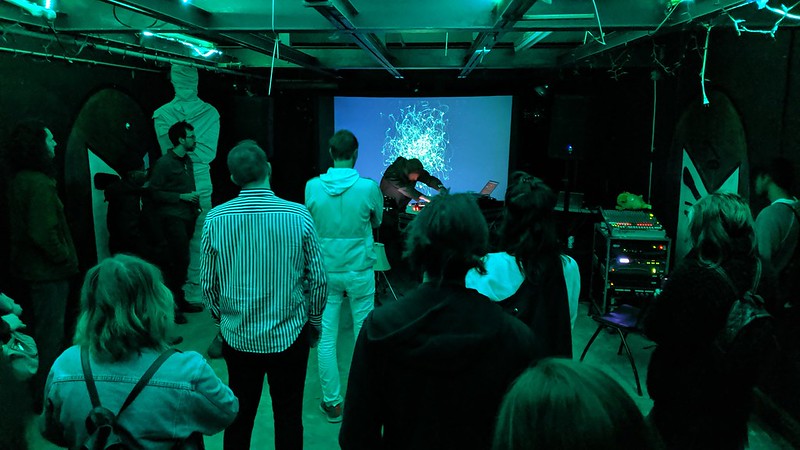
Organising DIY synth and electronics classes with instructors from the community. Photo courtesy of Maggie Kane
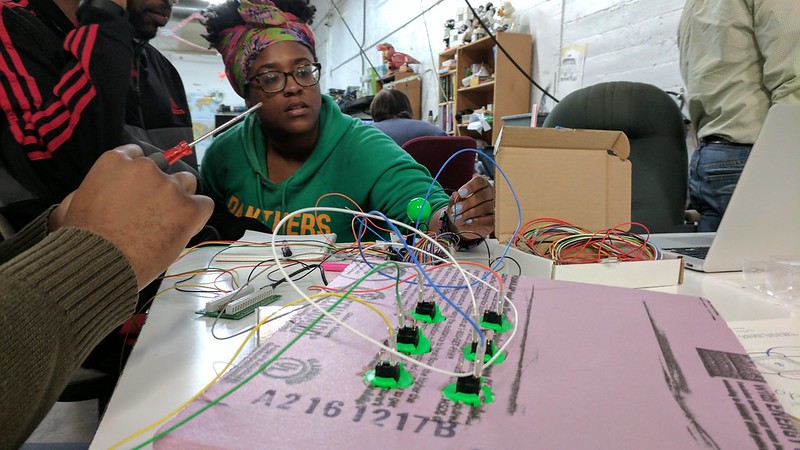
Organising DIY synth and electronics classes with instructors from the community. Photo courtesy of Maggie Kane
What is the place of art, imagination and creativity when developing and manage mutual aid projects?
Creativity plays a huge role!
You have to be creative to operate in this capitalistic system. You have to find all kinds of walk arounds and work with pretty much no assistance from the government.
Mutual aid is different from charity. Charity has a more top-down value, a trickle-down spirit where rich people are able to decide the type of people who need help and resources. In mutual aid, however, everyone comes together. For me, creativity involves being able to work with resources in an alternate fashion, finding alternate means for distribution.
The pandemic has made the need for mutual aid projects more visible than ever. Yet, one of its main components, the ability to physically be together, is now challenged by the safety measures. How can communities and participants of MAP face this new situation?
We lost an element of being together. In DIY spaces, for example, we can’t have shows anymore. We can’t come together and have community in-person conversations. On the other hand, as someone who is a self-taught technologist, I’d like people to get more into technology because it allows for more equitable access to information. Now there is this pressure to be more online and I’m glad about that. In the past, people were only using technology to promote in-person activities.
I’m involved in Free99Fridge. I’m the lead designer and builder for these free food shelters that we have around Atlanta. You can find these fridges all over the world and we have 6 of them in Atlanta. Many people are interested in the initiative and want to build their own. But the drawback for other people is that they don’t have the fabrication skills that I have or the knowledge of how to build a structure like I do. So I’ve been working on creating a very comprehensive guide for people who have never done construction before, never used a saw, etc. I want to make it very easy for people to know exactly what kind of material they have to buy from the hardware store, the type of tools they need, the type of processes that will help them build the food shelter. I’m a huge fan of open source projects. I’m trying to bring more art tech projects and mutual aid projects to an open source format so they can be more widely distributed in the whole world. Versus just in the circle of a few communities that are physically near each other.
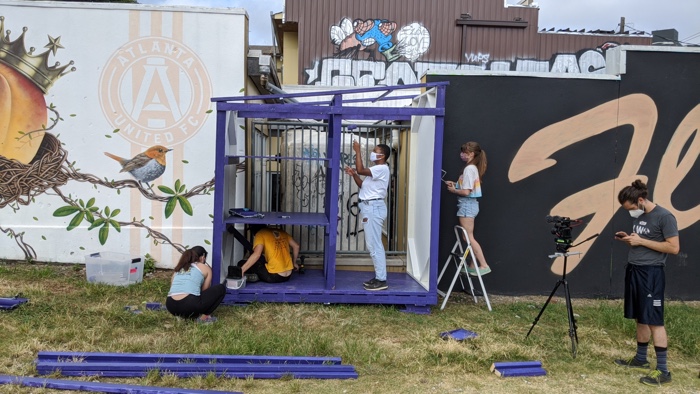
Atlanta Free99Fridge. Image courtesy of Maggie Kane
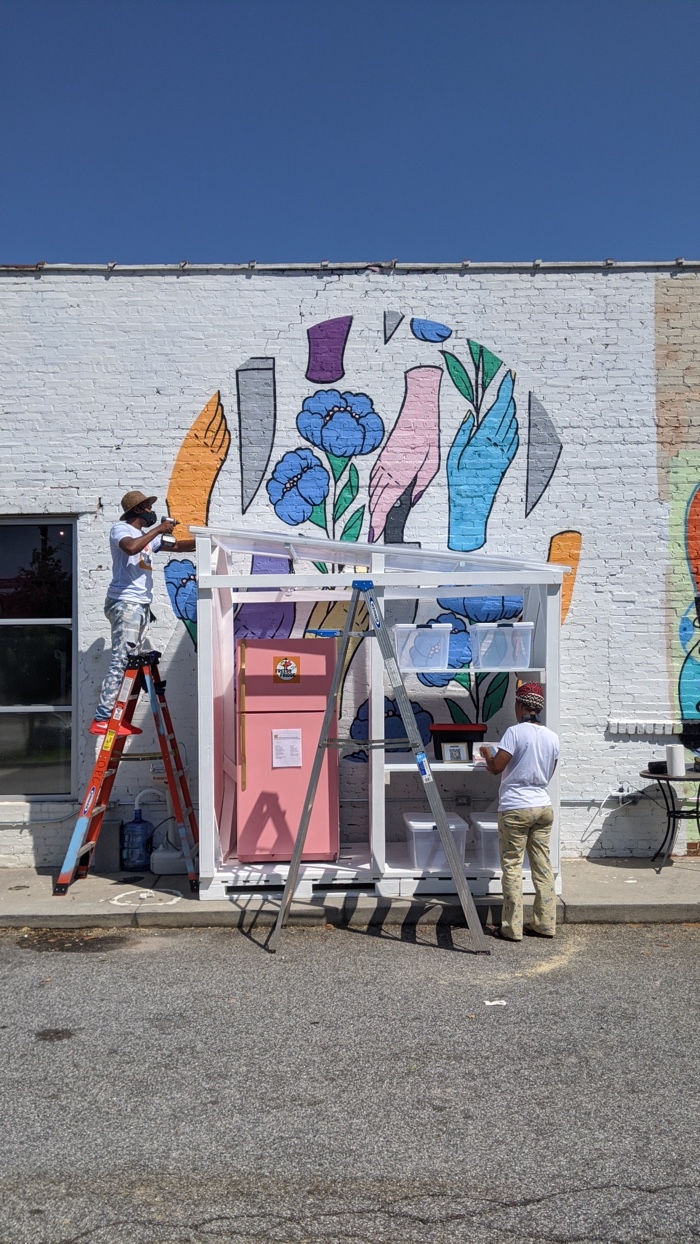
Atlanta Free99Fridge. Image courtesy of Maggie Kane
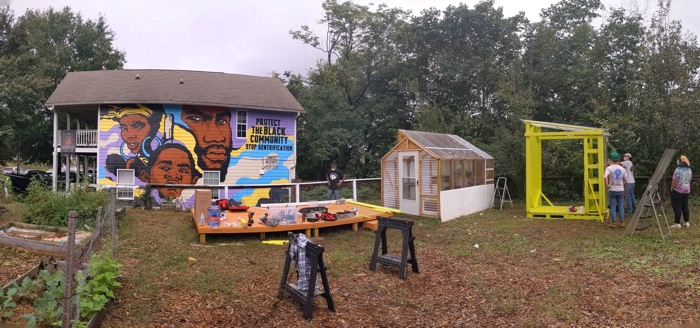
Atlanta Free99Fridge. Image courtesy of Maggie Kane
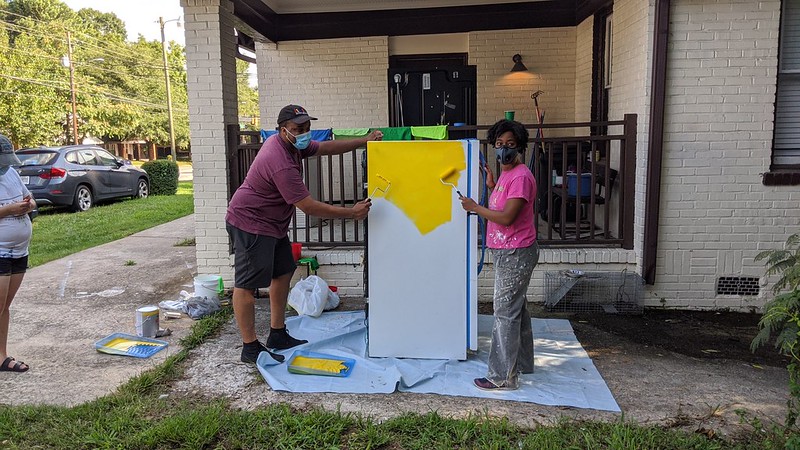
Atlanta Free99Fridge. Image courtesy of Maggie Kane
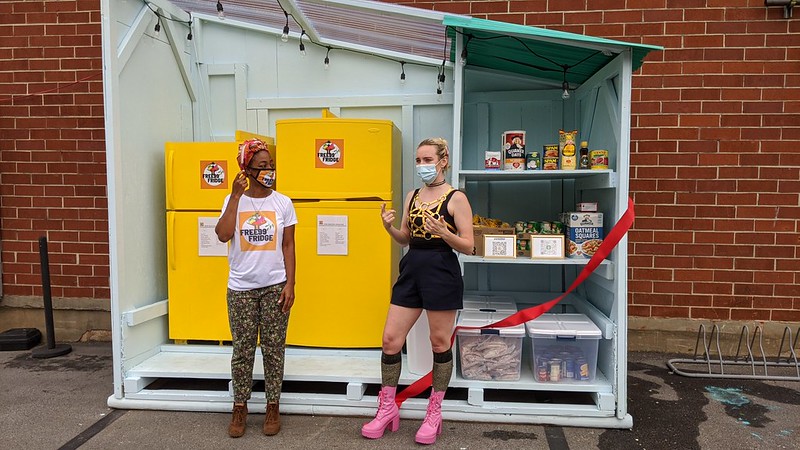
Atlanta Free99Fridge. Image courtesy of Maggie Kane
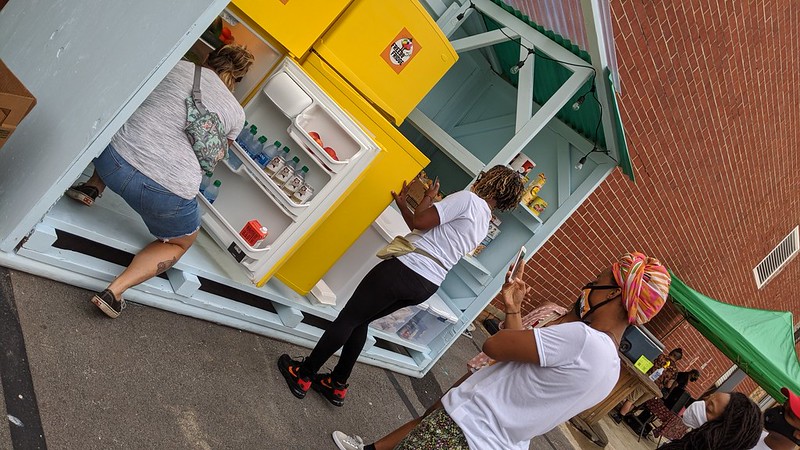
Atlanta Free99Fridge. Image courtesy of Maggie Kane
I didn’t realise you needed a structure for the fridges! I saw some of them in the South of France and I naively assumed that you just had to plug in a fridge and put it in the street.
It depends on where you are. Here in Atlanta, when we first put a fridge outside, someone stole it within a day. Security is important. We have to make sure that the fridge is secure. In another location, we even put a microwave and someone tried to steal it so I had to make a new box for the microwave to be in. You need to figure out what your community is like and what its needs are.
The fridges are accessible 24/7. Because the city is so horrible in terms of working with unhoused people or people who need food. There is an actual legislation that says that you can get a citation if you get caught feeding people on the streets.
Latisha Springer the founder of Free99Fridge visited several businesses that have publicly accessible spots around their premises in order to avoid putting the fridge on city property. The businesses sponsor the electricity and by putting the fridges on their properties, we avoid getting into any kind of problem with the city. Our city actively fights against unhoused / homeless people. You see people walking around the street and you know the city doesn’t take care of them in any way. People are living under the bridges and the city recently put rocks there to make it too uncomfortable for people to sleep and shelter there. You are constantly fighting against these measures. As a creative person, I feel compelled to work on these types of problems rather than on aesthetic problems. Producing something for a gallery or for a middle-class and upper-class audience doesn’t make any sense to me. I find it more meaningful to help solve actual problems.
This is going to sound naive but have you tried speaking with people who are in charge in Atlanta? With people working at the local government?
I know one politician: Park Cannon. She is a state representative and she’s a queer identifying Black woman. She’s pretty progressive and ready to listen and to share information.
Apart from her, I’d say that the Atlanta city council and the Atlanta government are inherently corrupt. If you look at their actions and compare them with their promises, you realise how bad the situation is. And if you think about the Black Lives Matter protests of last Summer and how the government pushed back, how violent the police were to people who were just trying to vocalise their concerns, you see how difficult it is to continue to put in the effort and energy to try and convince these people when it seems that their actions are so self-serving. I haven’t had faith in the government since I started working on this type of projects. If I apply for grants to work on community air projects, I usually don’t get it. I’d rather spend the time doing a fund raiser with my community in order to develop new opportunities. It’s hard because we are in a system where capitalism always prevails over communities and profits over people. All day every day.
Who or what were your sources of inspiration when it comes to Mutual Aid Projects?
One project I find amazing is Precious Plastic which was started by Dave Hakkens. You can go to their website and download blueprints and instructions to build shredding machines and melting machines to recycle plastic and turn them into new objects. Dave tries to help other makers build these tools themselves.
I want to give a shout out to Couchsurfing. It allowed me to travel around Europe in a non-capitalistic way and to connect with great people.
A local project I really like is Queer Threads. It’s a project started by Southern Fried Queer Pride and it focuses on black creativity but it is also supporting queer people. It’s a pop up thrift store specifically for queers and trans people. A lot of the time, people who are transitioning really struggle to pay for the whole process, for new clothes and other things that will help them achieve their new identity. But now you can go to Queer Threads and buy clothes super cheap. It’s both economically-friendly and a great way to offer social support for some members of the community.
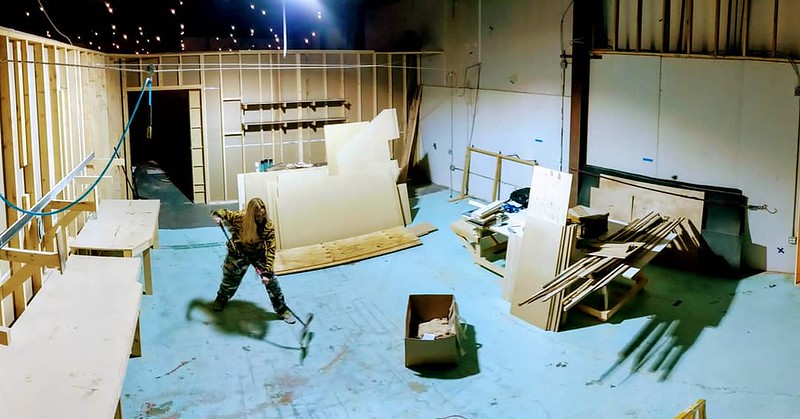
Photo courtesy of Maggie Kane
Thanks Maggie!
Maggie Kane’s course Modelling for mutual aid. Toolkit for building supportive networks is organised by The School of Machines, Making & Make Believe. The classes will take place online every Saturday from 20 February until 20 March 2021.